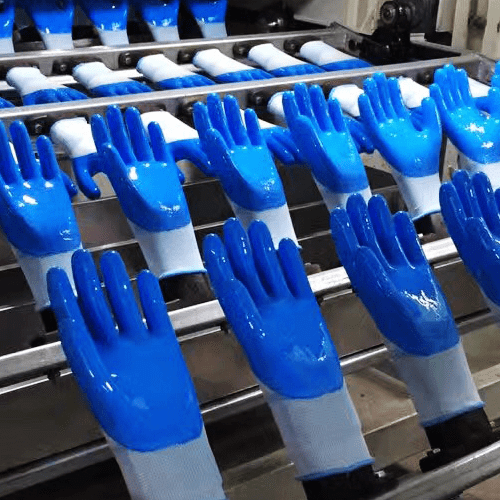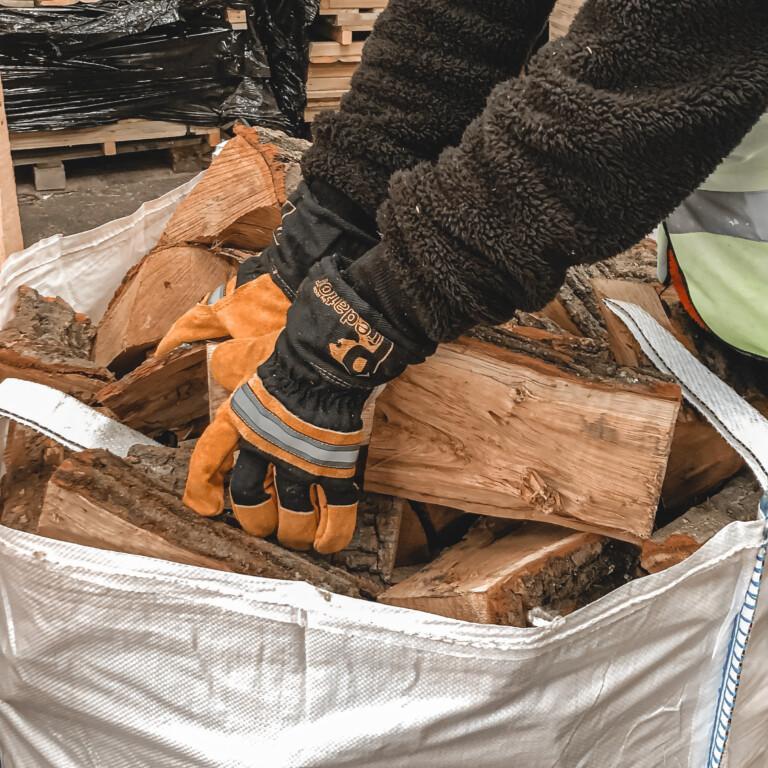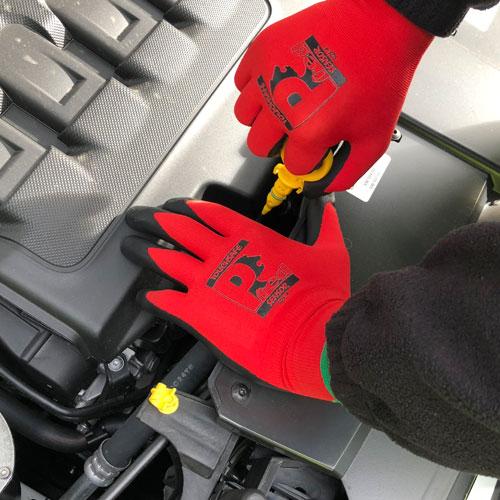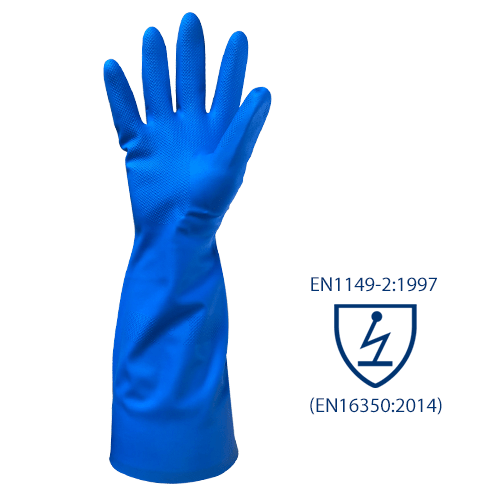A Guide to Glove Coatings
Knitted safety gloves are often coated with one or more different substances, which all offer different benefits. With so many coatings on the market, it can be hard to differentiate between them all. This blog will offer advice and information on all coatings used on our products.
Polyurethane
Polyurethane – often referred to as PU – is a composite material which can be processed into a lightweight coating, offering good dry grip; suited to lightweight tasks and manual handling. Unlike some other coatings, PU does not inhibit dexterity and enables free movement of the hand. Polyurethane is also often preferred by customers due to its price point.
One thing to consider when using Polyurethane is its chemical make-up. PU starts as a solid and, in the manufacturing process, DMF is added to change the state into a liquid. This process means that traces of DMF can be left in the coating which could make it unsuitable for use with or around food and foodstuffs. That said, after the state change, DMF can be removed to make the gloves suitable… to check if a product is suitable for use with food, look out for the EN1186 (fork and wine glass symbol).
Latex
Latex comes in 2 original forms: natural or synthetic. Natural Latex is an organic rubber derived from tree sap, whereas Synthetic Latex is manufactured using petroleum. During processing, proteins and additives are added to the primary element to make the Latex compound – which proteins and additives are used would depend on the product you are making.
Latex offers good abrasion resistance and is most commonly found in grip gloves. Latex can be manufactured and processed in different ways to create different finishes, which all result in different properties.
-
- Smooth Latex – Latex in its natural form, used in our products to waterproof gloves
- Crinkle Lates – Gloves are dipped in Smooth Latex and then into an acid bath, which creates a wrinkled texture on the surface, offering great grip
- Sandy Latex – Air is blown into the substance to create bubbles within the coating, then coated with industrial salt giving the Sandy effect which results in good abrasion and offering a suction like grip
- Foam Latex – Is a more resilient and flexible coating created by whipping the Latex continually during the coating process, which results in offering a grip that is good when used in wet, dry or oily conditions
Latex can cause allergic reactions and in serious cases, anaphylactic shock. If you do have a latex allergy, it would be recommended you use a Nitrile coated product.
Nitrile
Nitrile is a synthetic copolymer rubber made by re-processing Latex. During the re-processing, additives and proteins are removed which results in a material which is much less likely to cause allergic reactions, and for that reason can be a preferred coating.
Nitrile is hard-wearing – offering great abrasion and puncture resistance, whilst providing good resistance to oils and grease (like many other coatings), Nitrile can be processed in different ways to create different finishes.
- Nitrile Smooth – Incredibly hard-wearing and often has a shiny finish appearance
- Nitrile Foam – Much spongier to touch than Nitrile Smooth, made by combining Nitrile rubber with PVC
- Sandy Nitrile – Most likened to Nitrile Foam, however like Sandy Latex, industrial salt is added to give the Sandy effect, resulting in good abrasion and a suction like grip
PolyMAX™
PolyMAX™ is pre-polymer Polyurethane with no primary environmental impact, ensured by the natural oxygen decomposition in production. PolyMAX™ is incredibly kind to skin, containing no carcinogenic chemicals, such as DMF or benzene.
PolyMAX™ boasts a wide range of benefits and suits a multitude of applications – some of these benefits include:
- Incredibly hardwearing offering unrivalled abrasion resistance
- Oil-absorbency and water-repellent to remove liquid from the surface, enhancing grip
- 360o breathability and moisture permeability to minimise sweating
- Touchscreen compatibility on the coated areas
- Certified for use with and around food and foodstuffs
- Incredibly lightweight, dexterous, and versatile
- PolyMAX™ holds properties and performs incredibly well in low temperatures (as low as – 20oC)
PVC (Polyvinyl Chloride)
PVC is a thermal plastic polymer of Vinyl Chloride.
- Offers good abrasion resistance, but can be susceptible to punctures, cuts and snags. While it is flexible, it does not provide the tactile sensitivity associated with most rubber products
If you are interested in more information on the above or any other products within our portfolio, you can contact us via the below:
Call – 01653 617718
Email – sales@just1source.com







